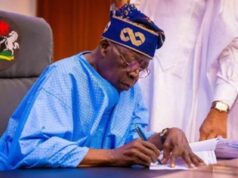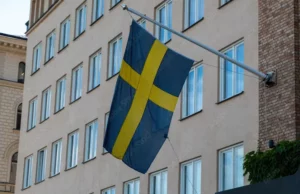Hon. Obinna Ichita, former Abia State lawmaker and Country Director of the German Initiative for Knowledge Transfer eV, has called on President Bola Ahmed Tinubu to facilitate the release of Mazi Nnamdi Kanu as a critical step toward addressing insecurity in the South East.
Ichita, who recently held a series of meetings with the detained leader of the Indigenous People of Biafra (IPOB) at the Department of State Services (DSS) Headquarters in Abuja, argued that Kanu’s release could help restore peace and stability in the region.
“The release of Mazi Nnamdi Kanu would contribute in no small way to the cessation of hostilities in the South East. It would also allow security operatives to distinguish between genuine agitators and criminal elements, thereby enhancing public safety,” Ichita said.
Ichita emphasized that dialogue, rather than force, is the best approach to resolving the crisis. He pointed out that even long-standing global conflicts are eventually resolved through negotiations, and Nigeria should not be an exception.
“Wars, even when fought, end with negotiations. It is smarter to prevent conflicts by addressing their root causes through dialogue. Modern democracies thrive on peaceful conflict resolution,” he noted.
READ ALSO: Hon. Ichita Calls For Presidential Intervention To Address Insecurity In South East
Hon. Ichita called on South East political leaders to engage more actively with the Federal Government, stressing that a coordinated approach involving the President’s intervention could lead to sustainable peace.
Criticizing the silence of South East leaders, Ichita questioned why they have not taken steps to seek a resolution to the crisis through a presidential audience.
“Why are South East leaders quiet while their home burns? What is stopping them from approaching the President to secure a peaceful resolution? Their inaction raises serious concerns,” he remarked.
Ichita further noted that the worsening insecurity has disrupted economic activities and caused fear among citizens, with many canceling trips to the region during the festive season due to threats of kidnappings and attacks.
Ichita appealed to President Tinubu to take the lead by authorizing a process for Kanu’s release and initiating discussions aimed at resolving the social and political issues fueling unrest.
“The release of Mazi Kanu would portray President Tinubu as a unifier and strengthen Nigeria’s image as a country capable of resolving its challenges internally. It is a step that would benefit not only the South East but the entire nation,” Ichita asserted.
He also stressed that delaying such an intervention could be counterproductive, as it might be perceived as politically motivated rather than a genuine effort for peacebuilding.
Ichita concluded by drawing parallels to Rwanda’s post-genocide recovery, emphasizing that Nigeria could achieve similar progress by fostering unity and addressing its challenges through dialogue.
“If Rwandans can rebuild their nation after 1994, Nigerians can do it too. Let us talk about the causes of our problems instead of fighting over them,” he said.
As insecurity continues to plague the South East, Ichita’s call highlights the urgent need for leadership, dialogue, and decisive action to restore peace and stability in the region.










